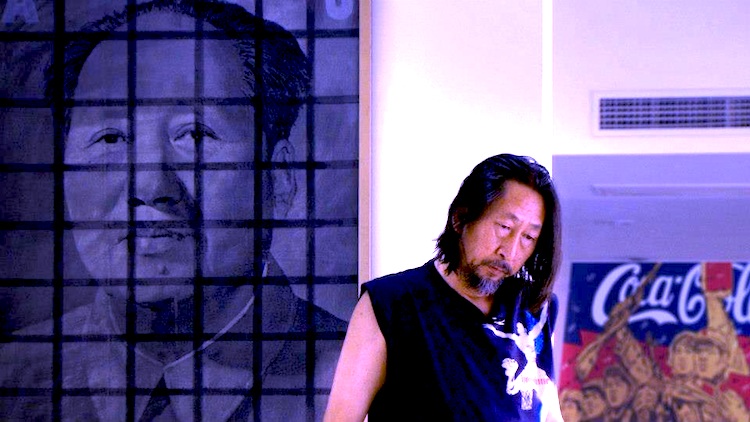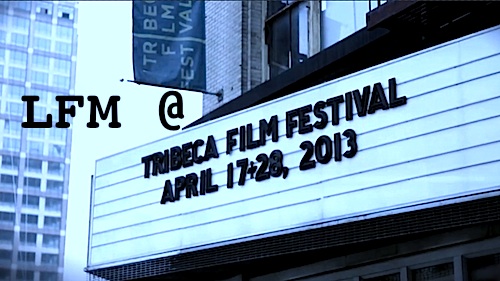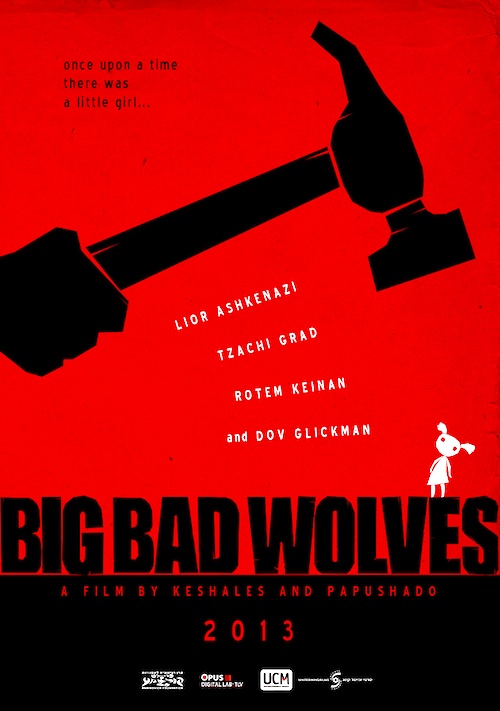By Joe Bendel. Considering China’s rapid economic expansion, is it any wonder that its contemporary arts scene shares the same global ambitions of its manufacturing sector? In fact, multi-millionaire artist Wang Guangyi is already an industry unto himself. For his part, Liu Gang has high hopes and heaps of potential. Documentary filmmaker Mika Mattila follows the two artists and their shows over a three year period in Chimeras, which screens during both this year’s Hot Docs and San Francisco International Film Festivals.
Wang Guangyi does not have Ai Weiwei’s name recognition outside China, but he sells like Gerhard Richter to his nouveau riche countrymen. Yet, there are still opportunities for an unknown like Liu Gang to mount his first one-man show in a prestigious gallery space. It seems the former art student is well on his to joining the elite, until his follow-up show is less enthusiastically received.
Not surprisingly, both artists wrestle with the baggage of China’s recent history and issues of globalization. Wang Guangyi freely mixes Communist iconography with consumerist imagery for an ambiguously ironic effect. When it comes to ideology, the senior artist seems deliberately cagey, aside from his explicit rejection of western aesthetic standards. Frankly, he remembers the Cultural Revolution fondly, because school was canceled. Still, he readily admits in retrospect great atrocities were also committed at the time (which to his credit, Mattila forthrightly illustrates with dramatic archival stills).
Young Liu Gang also clearly criticizes commercial impulses in his work, noting with some regret how China’s gallery system is almost entirely based on the Western model. Yet, it is when he proposes a series of works inspired by China’s One Child policy, the once welcoming establishment sort of freaks.
Mattila captures this dichotomy reflected in contemporary Chinese culture and commerce solely through direct observation. There is a lot of messy reality in the film, as well as some intriguing art. While ostensibly focused on the two artists and their oeuvre, the ghosts of history haunt the margins of the film in strange and unexpected ways.
Intelligently assembled by Mattila and his editor Mikko Sippola, Chimeras (not a great title, but so be it) opens a fascinating window into an underreported sector of China. Recommended for China watchers and for those who follow the international art scene, Chimeras screens Thursday (5/2) up north at Hot Docs and Saturday (5/4), Sunday (5/5), and the following Tuesday (5/7) out west at the San Francisco International Film Festival.
LFM GRADE: B
Posted on April 29th, 2013 at 3:18pm.



